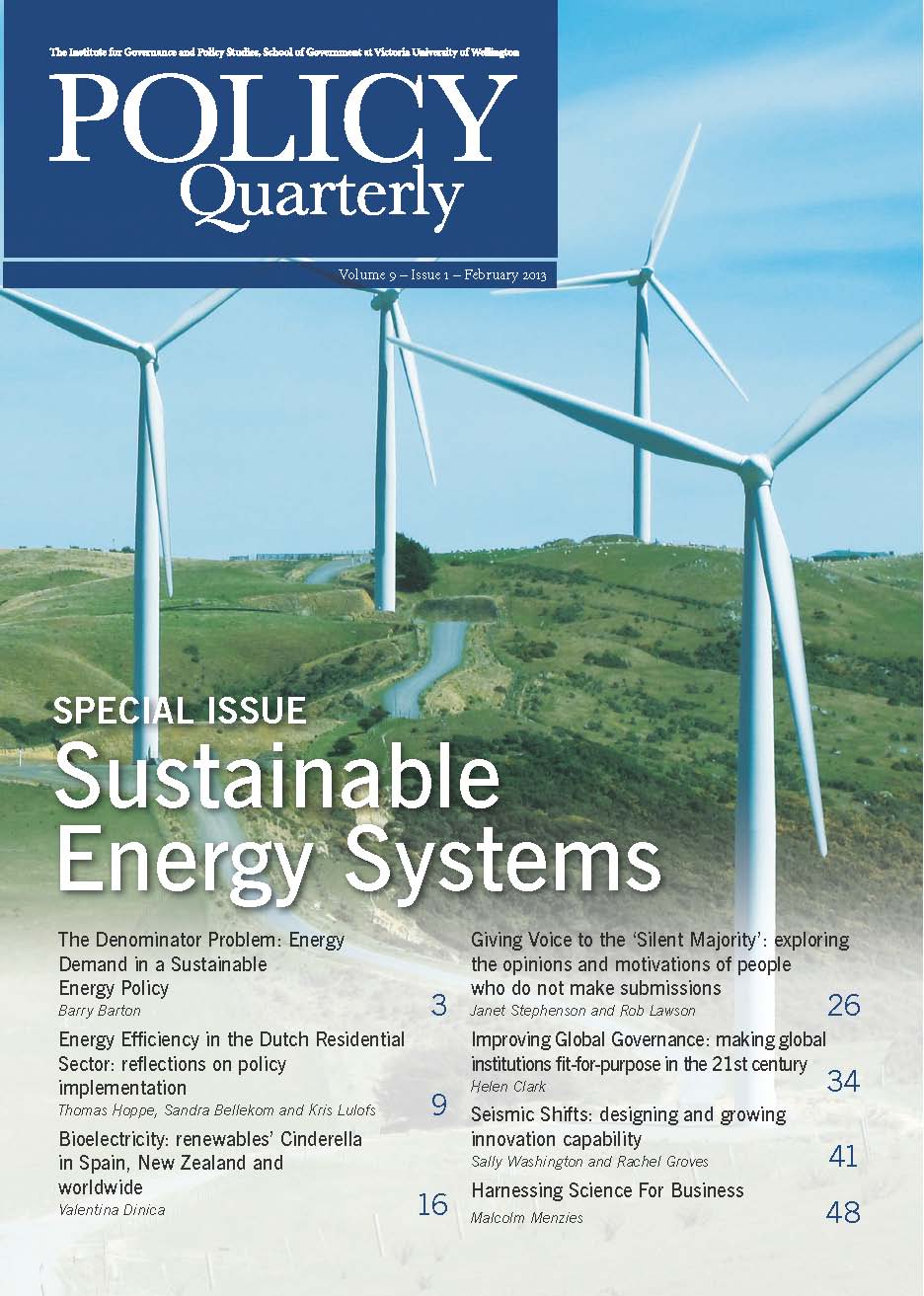Bioelectricity: renewables’ Cinderella in Spain, New Zealand and worldwide
DOI:
https://doi.org/10.26686/pq.v9i1.4439Keywords:
security of energy systems, energy efficiency of technologies, products and buildings, environmental impacts, Rio de Janeiro Declaration on Environment and Development, renewable resources, electricity consumption, biomassAbstract
Ever since the oil crises of the 1970s, governments around the world have grappled with the challenge of increasing the security of energy systems. On the demand side, policy interventions have focused on the energy efficiency of technologies, products and buildings, and on energy conservation through behavioural changes. On the supply side, the deployment of domestic renewable energy sources emerged as a logical option; this was especially encouraged in the contexts where political leaders also agreed to address the environmental impacts of energy production based on fossil fuels (air, water and soil pollution, next to biodiversity and human health impacts). The 1980s and 1990s brought about wider global concerns regarding the sustainability of development, reflected in the adoption by most governments of the 1992 Rio de Janeiro Declaration on Environment and Development and numerous other international agreements. Key among such concerns have been the depletability of natural resources, especially fossil fuels (United Nations, 1987), and the impacts of greenhouse gases on climate change.
Downloads
Downloads
Published
Issue
Section
License
Permission: In the interest of promoting debate and wider dissemination, the IGPS encourages use of all or part of the articles appearing in PQ, where there is no element of commercial gain. Appropriate acknowledgement of both author and source should be made in all cases. Please direct requests for permission to reprint articles from this publication to Policy-Quarterly@vuw.ac.nz.



